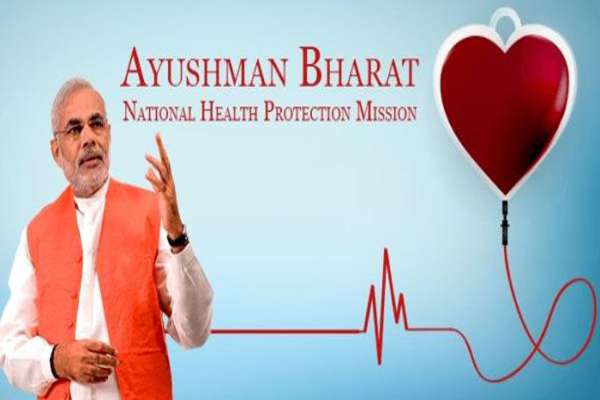Since last few centuries there have been very few things in which India led and rest of the world followed the suit. However, some latest policy implementations in the country have been world class and many other developing countries want to follow the suit. This happened with schemes like Swachh Bharat, rural electrification, work on renewable energy etcetera. In these fields India provided a template for the rest of the same income group countries to achieve socio-economic goals. Experts consider Aysuhman Bharat among the most efficient low cost healthcare schemes and suggest other countries to take it as model.
“As we look at Ayushman Bharat, I think this starts to work, we can really develop systems around healthcare that can drive down cost, it is going to be extremely powerful for healthcare around the world”, said Kieran Murphy, CEO and President of GE Healthcare, a 20 billion dollar healthcare equipment company with significant presence in India. Modi government launched Ayushman Bharat scheme on September 23 from Jharkhand. Under the scheme, Modi government will provide Rs 5 lakh health insurance cover to 50 crore people, which is nearly 40 percent of the population of the country. Besides the insurance cover, the government will create 1, 50,000 wellness centers across the country under the Ayushman Bharat scheme. The wellness centers which include Sub-centres, Primary Health Centers (PHC) and Community health centers (CHC) are the first line of contact for primary health care for the citizens of the country. The families which will benefit from the scheme will be identified from Socio-economic and caste census (SECC), 2011 data. This is the largest public health insurance scheme in the world.
India is one of the top five markets for GE healthcare and it seeks to develop cheap medical devices in collaboration with government research bodies. Kieran Murphy joined GE healthcare a year back and his company faces stiff competition from Siemens and Phillips in the segment of cheap healthcare devices. He is here for the first time in India to explore the exponentially growing market. The rollout of Ayushman Bharat has brought many national and international companies to take first movers advantage in India’s healthcare industry. The government has increased expenditure in healthcare and it is expected to go up further in upcoming years, the private expenditure on healthcare has expanded very fast in last decade. The total size of the industry is expected to be 372 billion dollars by 2022. Therefore it is golden opportunity for healthcare companies in India and GE healthcare wants its share in the pie.
“We create capacity in an industry that is growing through huge amount of change in developing world where you are going to see 1 or 2 billion people in the next 10 years entering, effectively a brand new market for healthcare”. Every single government around the world is looking at bringing down the cost of healthcare. That is why scale of GE is helpful for us, because we can talk to governments across the world about how we can use initiatives of GE to improve productivity”, said Murphy in an interview. However, to be benefitted from Ayushman Bharat, GE healthcare have to reduce cost of the equipments because the premium for the scheme is really low and the real competition lies in GE being able to provide low cost healthcare. “This is interesting for us because, as you think about GE, I want you to think about highly productive capacity of healthcare system which is under huge pressure to reduce cost” added Murphy.
According to the draft of National Health Policy, “Over 63 million people are faced with poverty every year due to healthcare costs alone. It is because there is no financial protection for the vast majority of healthcare needs.” The poor and needy have to sell their assets like jewelry in order to get quality healthcare, or land up borrowing money from Sahukars who levy heavy interests. The share of non regular expenditure on healthcare as a proportion of total household monthly per capita expenditure is 6.9 percent in rural areas and 5.5 percent in urban areas. The situation is same in other countries of South Asia like Pakistan, Bangladesh and countries in Sub-Saharan Africa. Basically Ayushman Bharat’s success could provide a template to all countries with similar per capita GDP to provide Universal healthcare. If this happens Ayushman Bharat will not be only a service to country but to humanity around the world.
